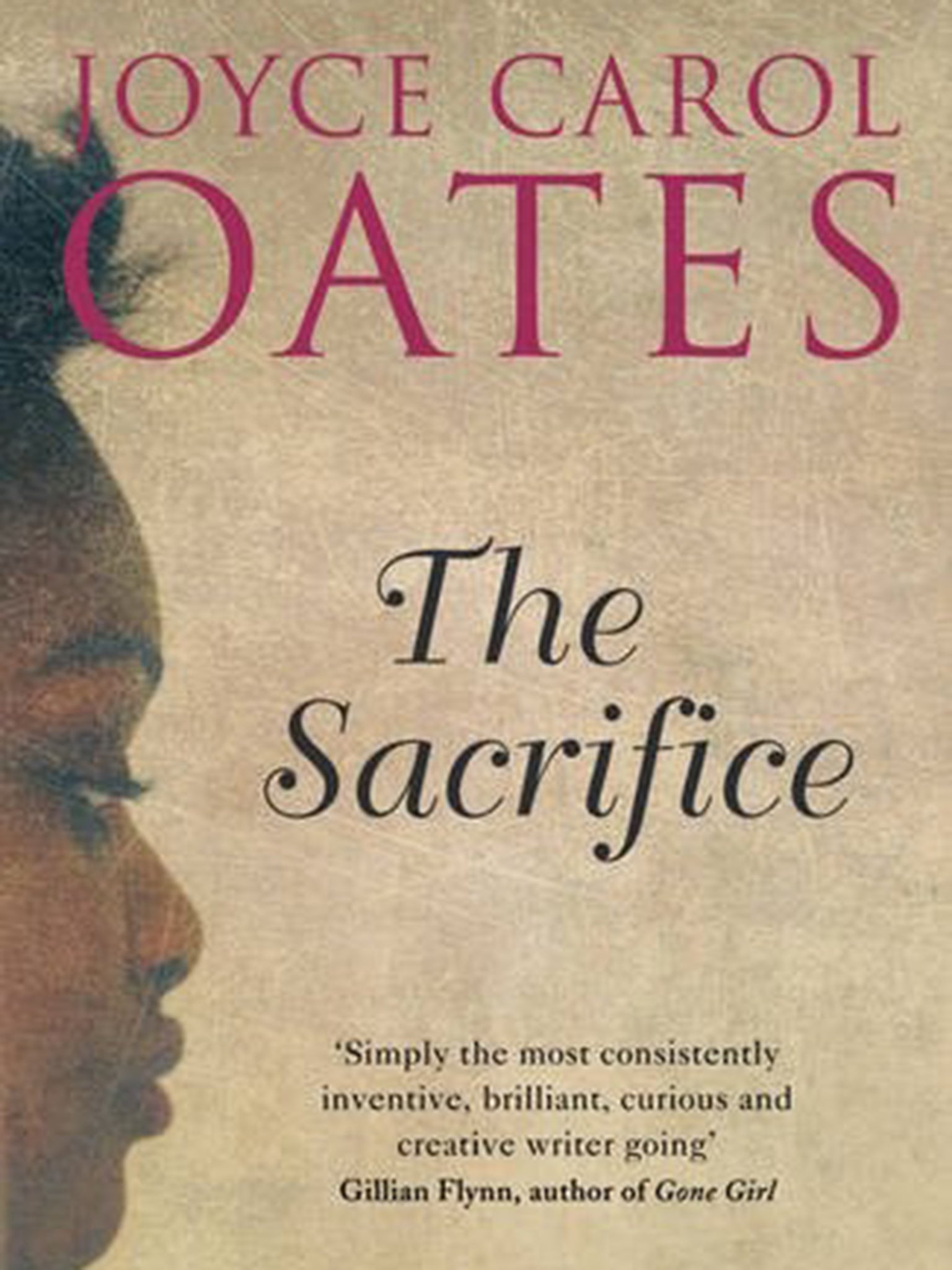The Sacrifice by Joyce Carol Oates - book review: Raging for the powerless
The novel simmers with barely concealed anger at the impotence inflicted on people by race and gender inequalities

The violence inflicted on the least powerful members of society has seen Joyce Carol Oates focus particularly on the sexual harm done to young women and children, in novels such as Daddy Love and We Were the Mulvaneys. But Black Girl/White Girl has also seen her focus on racial issues, and My Sister, My Love took inspiration from the unsolved real-life murder of JonBenet Ramsey.
Her latest work brings those three themes together superbly, in her characteristic visceral and hypnotising style. Based on the 1988 Tawana Brawley case, it tells of 15-year-old Sybilla Frye, found by a neighbour in the cellar of her building, hog-tied and smeared in faeces with racist epithets scrawled on her body, badly beaten and probably sexually assaulted. Sybilla manages to convey to her rescuer and to Ines Iglesias, the Hispanic cop sent to interview her, that she was kidnapped and attacked by five, possibly six men, one of whom wore a badge. Like a police officer.
Her experience has been horrific, but Oates tells it from multiple viewpoints: Sybilla, her mother Ednetta, Ines, the brothers Byron and Maris Mudrick, who stir up racial hatred over the attack, rookie cop Jerold Zahn, who is identified as one of the attackers, and Anis Schutt, Sybilla’s stepfather. What this approach does is to emphasise the conflicting pieces of evidence in the case.
But this multiple approach also emphasises the powerlessness of women. Because the women in this tale are surrounded by men, bigger and more powerful than they are, with louder voices that repeatedly intrude. Ednetta is kept in her place by the violent and dangerous Schutt, who has served time for killing his first wife; Ines is a lone female officer in the company of men; the Mudricks send the Fryes away, tell them what to say, how to dress, how to behave. Even the boy in whom Sybilla is interested threatens his presence from prison.
This novel simmers with barely concealed rage at the impotence inflicted on people by race and gender inequalities: the rage of the characters themselves, and the rage of the authorial presence that points us to events ahead, or describes voices that are “heavy with sarcasm”. That presence, an additional voice in itself, is one of Oates’s best effects, directing us while seeming not to, and all the time reminding us of horror and what it really means.
Join our commenting forum
Join thought-provoking conversations, follow other Independent readers and see their replies
Comments
Bookmark popover
Removed from bookmarks